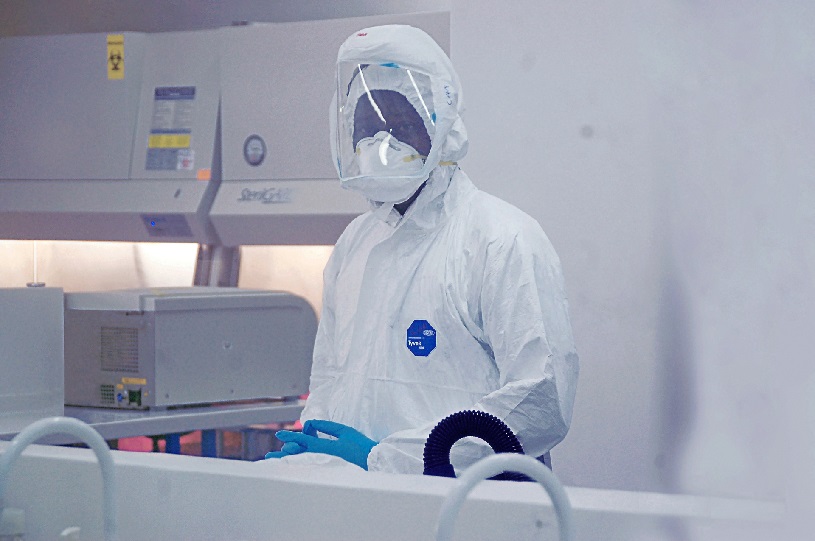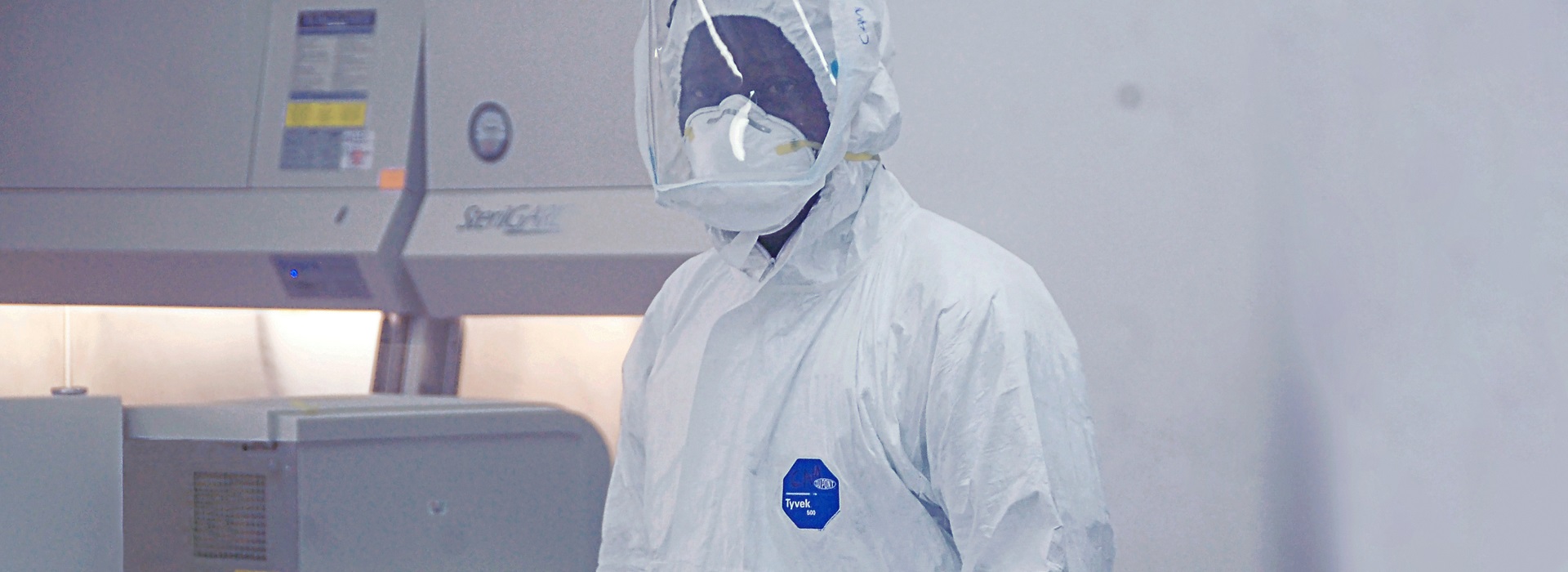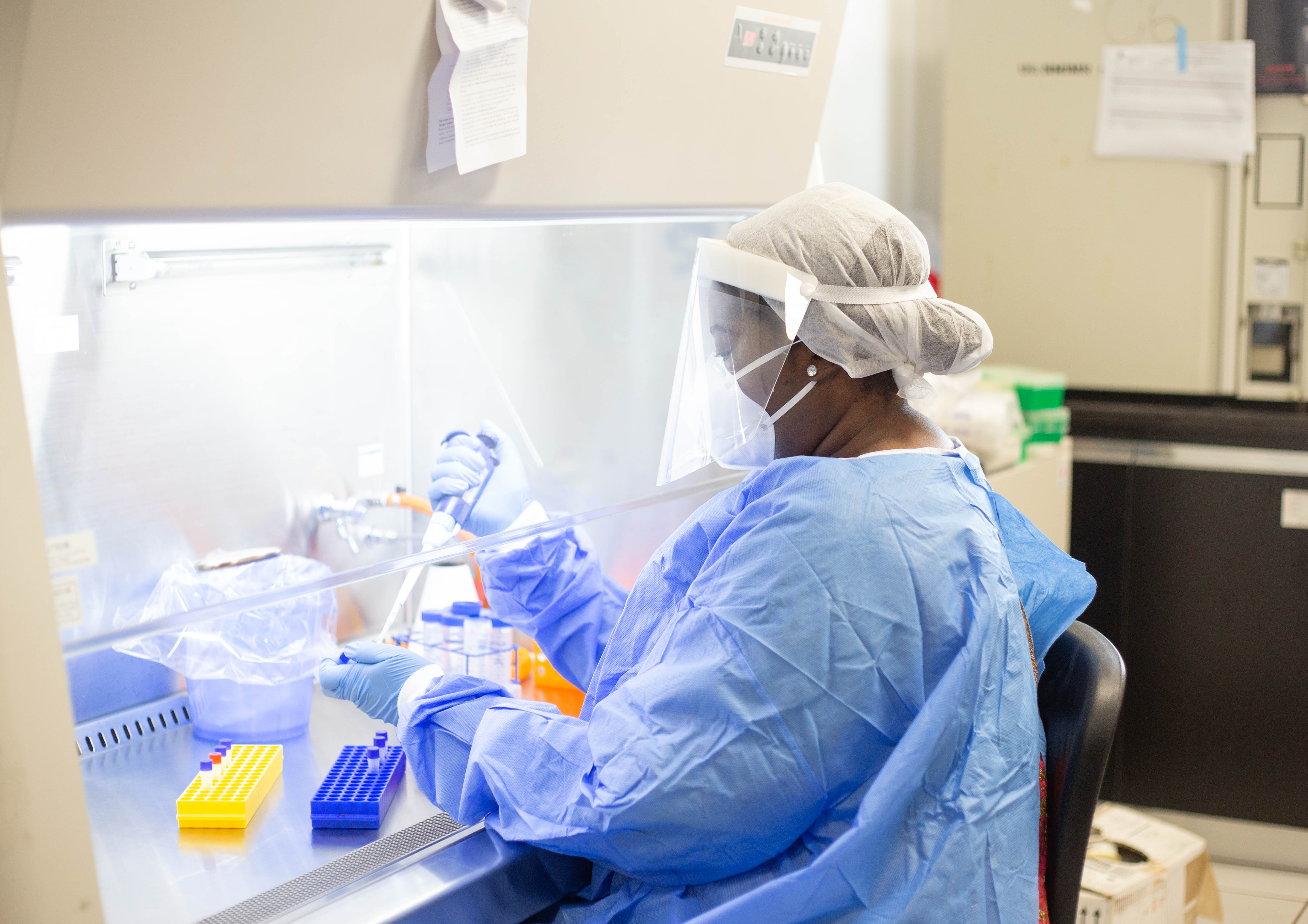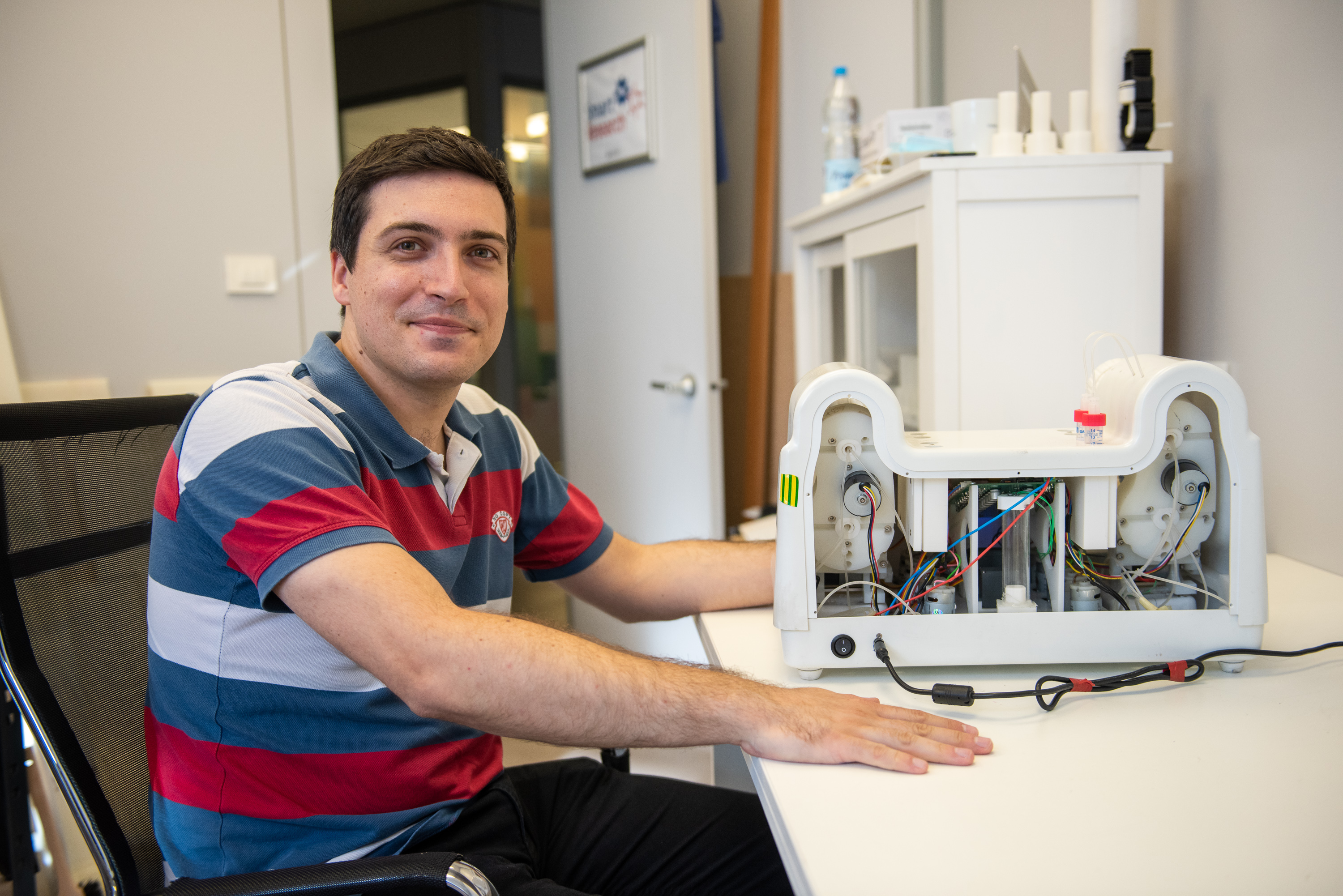

Social Development: A flexible approach to fighting the virus
After training in Germany, specialists are taking their expertise back to their home countries. The global coronavirus outbreak is placing different demands on them than originally planned.
Across the globe – whether in Nigeria, Ghana or Serbia – the need for medical expertise is greater than ever. Returning experts who have worked in Germany are now providing support to help their home countries stop the spread of the virus.
Clement Meseko moves around the laboratory of the National Veterinary Research Institute (NVRI) in Vom, Nigeria dressed from head to toe in a white protective suit. Meseko is a veterinary doctor and currently one of his country’s sought-after experts. The fact that the new coronavirus made the jump from animals to humans did not come as a surprise to him. Meseko has already been carrying out research on this phenomenon – known by experts as anthropozoonosis – for some time now. Back in August 2019, when most people had no idea that COVID-19 was looming on the horizon, the possibility of a pandemic was the subject of one of his seminars in Lagos. When the new virus began to spread across the globe early in 2020, Meseko took on an important role. He shared his knowledge at ad hoc education events, informing colleagues and the public about the origins and dangers of the virus and the preventive measures that needed to be taken.

Exceptional circumstances call for adaptability
Clement Meseko is one of 524 ‘returning experts’ throughout the world currently being supported by the Deutsche Gesellschaft für Internationale Zusammenarbeit (GIZ) GmbH on behalf of the Federal Ministry for Economic Cooperation and Development (BMZ) and in collaboration with the German Federal Employment Agency’s International Placement Services (ZAV). They are migrants who have studied or worked in Germany and then pass on their knowledge and experience working for an employer in their country of origin.
Meseko’s assignment as an expert in Nigeria was originally supposed to be a much different one: After a two-year period of research at the Alexander von Humboldt Foundation in Bonn, he returned to his home country in 2019 and shortly afterwards began working as a research director for the National Veterinary Research Institute (NVRI) in the federal state of Plateau. He and his team were supposed to be monitoring outbreaks of disease, particularly in agricultural animal husbandry. In view of the spread of the pandemic, however, he changed the focus of his work. ‘The coronavirus originated in animals. But at the moment it is causing problems not for animals, but for humans,’ he explained. ‘We therefore adapted our work here at short notice to assist in local health care.’
From April onwards, the research institute switched over to investigating human COVID-19 samples in its 220-m2 laboratory. Meseko gave the laboratory staff refresher training on biological and laboratory safety. To avoid bottlenecks, his team prepared 140,000 containers for the Nigerian Ministry of Health with which COVID-19 samples can be transported to the laboratory safely. By the end of June, the institute had performed 14,000 COVID-19 tests of its own. At the same time, Meseko continued to promote academic exchange at the institute on all aspects of the virus.

Harnessing positive effects of migration for development
Like Clement Meseko, other experts with a history of migration are working to help their countries of origin. Specialising in respiratory diseases, the molecular biologist Ivy Asantewaa Asante from Ghana obtained a doctorate in Germany and worked at an institute of experimental virology in Hamburg. At the end of 2019, she returned to Accra to share her knowledge about experimental set-ups and to publish research results on influenza viruses. Due to the increase in demand, she is now head of a team of 35. By providing faster coronavirus test results, Asante is helping to improve the country’s crisis management.
The Serbian molecular biologist and company founder Marko Panic also gained a doctorate in Germany and worked at the University of Stuttgart. Back in Serbia, he and his business partner, a specialist in mechanical engineering, responded to the crisis immediately. Their firm, Smart Research, develops medical equipment. As ventilators were urgently needed for coronavirus patients with severe symptoms, they produced the prototype of a mechanical ventilator within just a few weeks. ‘The ventilator is used as a component for respiratory devices. The first five models are currently being tested for us by a partner institute and, if they are successful, are being certified. We want to get our production prepared in time for a new wave of infection,’ Panic explained.
As they are very familiar with the needs in their countries of origin, experts like Meseko, Asante and Panic can help find suitable solutions to problems on the ground. The expertise of people like these is in great demand throughout the world. During the coronavirus crisis in particular, their knowledge and commitment are vital. In collaboration with ZAV, GIZ is supporting this dynamic work in 25 partner countries.
Last updated: July 2020